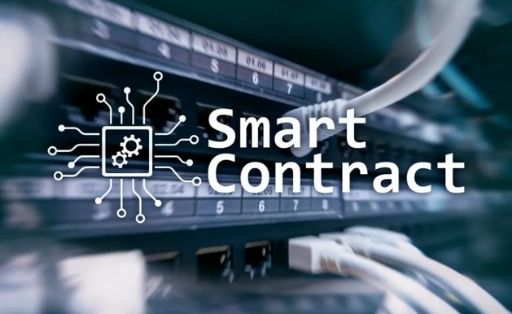Smart contracts are computer programs that execute when certain criteria are satisfied and recorded on the blockchain. When a contract is automated, both parties can be sure of what will happen without the need for a middleman or a time-consuming process. Additionally, they may be used for workflow automation by triggering the next desired process if certain circumstances are satisfied.

Contents
The mechanics of smart contracts
Coded with “if/then…then”phrases, a smart contract developer builds smart contract on the blockchain. When predefined circumstances are fulfilled and validated, a network of computers takes action. For example, they could be set to release money, register a vehicle, send a notice, or issue tickets. When the transaction is completed, the blockchain is updated. That implies that you can’t reverse the transaction, and only people who have been allowed access to the results may see them.
A smart contract may include as many specifications as necessary to ensure that the activity is accomplished to the parties’ satisfaction. As part of the process of establishing the terms, parties must identify how transactions and associated data are recorded on the blockchain, agree on “if/when/then” rules governing those transactions and investigate any exceptions, and build a framework for dealing with disputes.
Are there any commercial uses smart contracts
Hyperledger fabric smart contract is the modular used to develop open-source blockchain applications and solutions. Look at how various industries may benefit from smart contracts in blockchain technologies currently in use.
Identity verification
When it comes to your personal information, there are many places where you may find it – from your bank to your workplace to your social media accounts. You’d need a ton of documents, references, and copies to put all of this together in one file. This is a pain in the neck for those who must pass an identity verification.
This difficulty can be solved by smart contracts, which enable you to store all of the information on a single individual in one location. To maintain the integrity of your identity, the blockchain can record each and all events that occur in your life. Because of this, the process of verifying a user’s identity would be instantaneous. Your privacy would be protected since you are the one who decides what information to share with the world.
Banking industry
You have to pay transaction fees, and then you have to wait a few days for the transaction to be finalized. It’s impossible to dispute that the current financial system is not without flaws, although it runs well. There are no middlemen needed with smart contracts.
As a result, there are no costs for you to pay. Transactions are quick and inexpensive because of the lack of bureaucracy. Furthermore, the blockchain’s promise of complete transparency decreases the possibility of fraud.
Taxpayer Information
Imagine rushing to the post office with your stack of tax return papers only to find it closed. This isn’t a pleasant situation to be in. Using smart contracts, you might avoid penalties and avoid unwittingly committing a crime by making automatic payments that are prompted by smart contracts. Additionally, all tax data is stored on the blockchain and accessible to anybody willing to search for it. It is almost hard to cheat on taxes because of the system’s openness.
Insurance industry
For a small accident, your first concern would be making an insurance claim. The other party should pay for repair costs if the accident was not your fault. What if this individual refuses to accept responsibility for their actions? It’s unlikely that you’ll get reimbursed.
Suppose the vehicle has an IoT gadget broadcasting its position, speed, and collision timing. Your payment would be made immediately if you’re correct, thanks to the evidence written on the blockchain.
Supply Chain
You can never be sure how fresh fish is until you purchase it at the shop. It could have come from any ocean around the world. You may believe it or not, but your alternatives are limited. Smart contracts Ethereum and IoT devices can transform logistics and supply chain management.
Automated and transparent product flow tracking is made possible thanks to their assistance. You always know where the items are, how they’re being kept, and when they’ll arrive. It’s not only for food goods, though. Tracking retail products, sustainably sourced coal, oil, and gold, to name a few possible uses for this technology. There is less possibility of fraud because of the blockchain, making providers more trustworthy.
Takeaway
Smart contracts bring efficiency, accuracy, security, speed, transparency, and cost savings to the table. It’s the job of a developer to code smart contracts. But, there’s an increase in companies utilizing blockchain for business providing templates, web interfaces, and other online tools to simplify building smart contracts.
